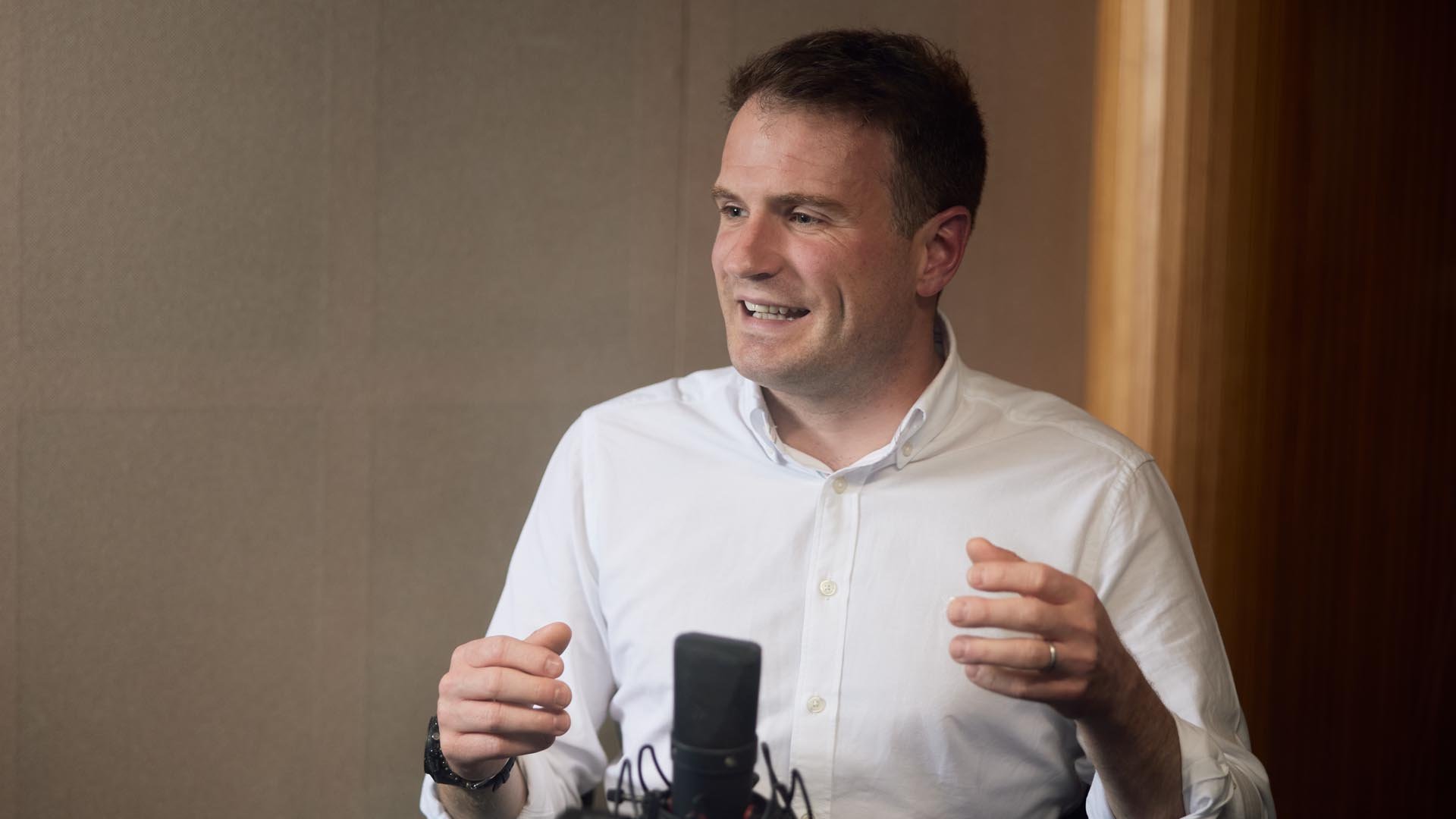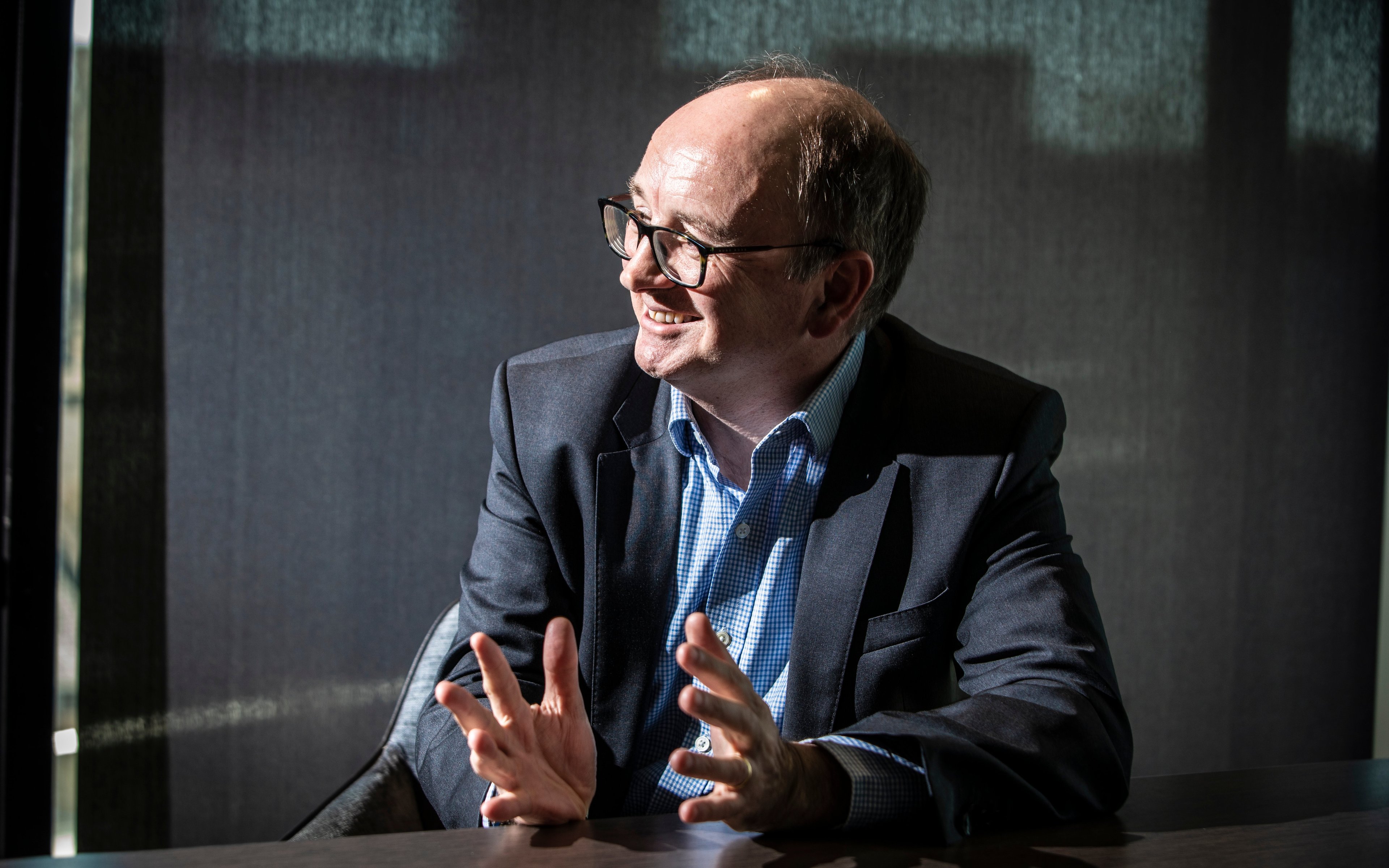Key points
- Meta, Shopify and Block are among companies that have restructured and fine-tuned their operations since 2022
- Rapid advances in artificial intelligence are creating new ways to achieve long-term growth
- By refocusing their efforts, these companies have become more agile and capable of seizing such opportunities
Listen to the podcast on Spotify and Apple Podcasts
Your capital may be at risk.
In business, bigger isn’t always better. Over the past couple of years, many leading internet-focused companies have pruned their operations, making strategic cuts and refocusing resources. This was partly a reaction to changed expectations after the Covid lockdowns, when it became apparent that forecasts about the amount of time and money consumers would spend online had been overoptimistic. But it also reflected a shift in focus. The result is that these businesses are now fitter and more focused, as investment manager Gary Robinson suggests on our Short Briefings on Long Term Thinking podcast.
“It forced these companies to take a serious look at their organisational structures, their cost bases, their priorities,” he explains. “These businesses are now coming out the other side, stronger – not just in terms of being more profitable, but more nimble, more adaptable, more resilient.”
Shopify is one example. The Canadian company makes it easier for merchants of all sizes to sell their goods online. Since 2022, its chief executive Tobi Lütke has overseen two rounds of job cuts, sought to reduce the number of internal meetings and sold the majority of its logistics business as part of an effort to become what he termed “fit for purpose”.
“Lütke says that the reason why large companies slow down isn’t usually because they get large,” says Robinson. “It’s because they accumulate what he calls ‘side quests’ – projects that aren't aligned with their core purpose.
“Logistics was very much in that category of nice-to-have rather than the need-to-have. And with the emergence of generative AI, the nature of what’s possible for Shopify has completely changed. So it makes sense for the company to reorient itself around the opportunity.”
The firm has already launched AI features that allow its clients to automatically create product descriptions, answer customer queries and get support running their stores by asking a virtual assistant natural-language questions, such as: “What are my best-selling products?” But Robinson believes these will seem rudimentary compared to what will be possible within a few years.
“Having a founder who can make the company pivot fast and redirect resources during a paradigm shift is powerful,” he adds. “Unlike non-founder managers, they have the moral authority to cut through the politics and make bold decisions.”
Meta’s mission
Meta’s Mark Zuckerberg is another decisive founder-leader making tough choices to prepare for the AI age. He declared 2023 a ‘year of efficiency’, cancelling lower-priority projects, reducing the number of managers and making other changes to return to “a more optimal ratio of engineers to other roles” at Facebook, Instagram, WhatsApp and its other products.
“This was not about retrenching or a lack of ambition,” says Robinson. “This was about how does Meta best execute on its core mission.”

Mark Zuckerberg told staff that a leaner organisation executes its highest priorities faster
© Frederic Legrand - COMEO/Shutterstock.
That task has involved developing new artificial capabilities, among other tools, to help businesses target ads at relevant customers and gauge their performance. This was prompted by Apple restricting Meta’s ability to track users’ activities on third-party apps and websites.
In addition, Meta has improved the recommendation engine underpinning Reels, its short-video service that competes with TikTok. Looking further ahead, Robinson believes there’s a huge opportunity to offer chatbot services to other businesses powered by its proprietary AI models.
“WhatsApp and Messenger have got the potential to be powerful customer service channels, but the challenge is that if you're just using human agents to do that customer service, it gets very expensive very quickly,” he explains.
“Rather than hiring thousands of people to do that customer service for you, Meta could provide you with the AI agents necessary to do the customer service and thus monetise the apps to a greater extent than it’s achieved to date.”
Block’s big opportunity
An internal shake-up also convinced Robinson to invest in Block, the fintech co-founded and led by Jack Dorsey. He’s trimmed staff numbers from just over 13,000 to 12,000, saying it would force the firm to “prioritise more impactful work”, and pledged to maintain that figure until it was a constraint on growth. In addition, he has restructured the firm to involve himself in more day-to-day decisions.
“Most great companies are tilted towards being decentralised, but I think Block probably took that a bit too far to the point where the individual business units at the firm were focused more on what they were doing than the overall mission of the company,” explains Robinson.
This has the potential to help bring two parts of the company closer together:
- Square – the provider of point-of-sale hardware and software that lets shops, restaurants and other businesses accept offline payments, provide gift cards and run customer loyalty schemes, among other services
- Cash App – a service that lets users send and receive money, shares or bitcoin cryptocurrency for free. It makes money by charging fees on credit card payments, selling bitcoin and allowing customers to make instant withdrawals rather than waiting up to three business days
Having both platforms under the same roof puts Block in the rare position of being able to break into a highly lucrative market.

Square allows businesses to easily accept tap-and-go payments securely
© Block, Inc.
“There’s the potential for Block to build a ‘closed-loop card network’, like Visa and MasterCard, where the transaction runs across the same infrastructure from the point the consumer pays to the point the merchant receives the payment,” explains Robinson. “But to do so, it needs to tie Square and Cash App up rather than running them as two independent businesses.”
Robinson acknowledges that efficiency savings come with human costs, and leaders need to be mindful of how these might impact their companies’ culture. But he adds that, when handled well, they can free up investment and management time to focus on future growth, benefitting staff, customers and shareholders.
“This gave the companies the impetus and the licence to think from first principles about what their businesses ought to look like,” he says. “And, in my opinion, almost all the best companies are run by first principle thinkers who approach the task with a blank sheet of paper and ask, how ought it to be done, not how is it done.”
Hear more of Gary’s thoughts, including Amazon’s growth opportunity, by subscribing to Short Briefings on Long Term Thinking on your favourite podcast app.
Words by Leo Kelion

Gary Robinson
Investment Manager, Partner
Risk factors
The views expressed should not be considered as advice or a recommendation to buy, sell or hold a particular investment. They reflect opinion and should not be taken as statements of fact nor should any reliance be placed on them when making investment decisions.
This communication was produced and approved in July 2024 and has not been updated subsequently. It represents views held at the time of writing and may not reflect current thinking.
Investing in private companies could increase risk as these assets may be more difficult to sell, so changes in their prices may be greater.
Potential for profit and loss
All investment strategies have the potential for profit and loss, your or your clients’ capital may be at risk. Past performance is not a guide to future returns.
This communication contains information on investments which does not constitute independent research. Accordingly, it is not subject to the protections afforded to independent research, but is classified as advertising under Art 68 of the Financial Services Act (‘FinSA’) and Baillie Gifford and its staff may have dealt in the investments concerned.
All information is sourced from Baillie Gifford & Co and is current unless otherwise stated.
The images used in this communication are for illustrative purposes only.
Important Information
Baillie Gifford & Co and Baillie Gifford & Co Limited are authorised and regulated by the Financial Conduct Authority (FCA). Baillie Gifford & Co Limited is an Authorised Corporate Director of OEICs.
Baillie Gifford Overseas Limited provides investment management and advisory services to non-UK Professional/Institutional clients only. Baillie Gifford Overseas Limited is wholly owned by Baillie Gifford & Co. Baillie Gifford & Co and Baillie Gifford Overseas Limited are authorised and regulated by the FCA in the UK.
Persons resident or domiciled outside the UK should consult with their professional advisers as to whether they require any governmental or other consents in order to enable them to invest, and with their tax advisers for advice relevant to their own particular circumstances.
Financial Intermediaries
This communication is suitable for use of financial intermediaries. Financial intermediaries are solely responsible for any further distribution and Baillie Gifford takes no responsibility for the reliance on this document by any other person who did not receive this document directly from Baillie Gifford.
Europe
Baillie Gifford Investment Management (Europe) Ltd (BGE) is authorised by the Central Bank of Ireland as an AIFM under the AIFM Regulations and as a UCITS management company under the UCITS Regulation. BGE also has regulatory permissions to perform Individual Portfolio Management activities. BGE provides investment management and advisory services to European (excluding UK) segregated clients. BGE has been appointed as UCITS management company to the following UCITS umbrella company; Baillie Gifford Worldwide Funds plc. BGE is a wholly owned subsidiary of Baillie Gifford Overseas Limited, which is wholly owned by Baillie Gifford & Co. Baillie Gifford Overseas Limited and Baillie Gifford & Co are authorised and regulated in the UK by the Financial Conduct Authority.
China
Baillie Gifford Investment Management (Shanghai) Limited
柏基投资管理(上海)有限公司(‘BGIMS’) is wholly owned by Baillie Gifford Overseas Limited and may provide investment research to the Baillie Gifford Group pursuant to applicable laws. BGIMS is incorporated in Shanghai in the People’s Republic of China (‘PRC’) as a wholly foreign-owned limited liability company with a unified social credit code of 91310000MA1FL6KQ30. BGIMS is a registered Private Fund Manager with the Asset Management Association of China (‘AMAC’) and manages private security investment fund in the PRC, with a registration code of P1071226.
Baillie Gifford Overseas Investment Fund Management (Shanghai) Limited
柏基海外投资基金管理(上海)有限公司(‘BGQS’) is a wholly owned subsidiary of BGIMS incorporated in Shanghai as a limited liability company with its unified social credit code of 91310000MA1FL7JFXQ. BGQS is a registered Private Fund Manager with AMAC with a registration code of P1071708. BGQS has been approved by Shanghai Municipal Financial Regulatory Bureau for the Qualified Domestic Limited Partners (QDLP) Pilot Program, under which it may raise funds from PRC investors for making overseas investments.
Hong Kong
Baillie Gifford Asia (Hong Kong) Limited
柏基亞洲(香港)有限公司 is wholly owned by Baillie Gifford Overseas Limited and holds a Type 1 licence from the Securities & Futures Commission of Hong Kong to market and distribute Baillie Gifford’s range of collective investment schemes to professional investors in Hong Kong. Baillie Gifford Asia (Hong Kong) Limited
柏基亞洲(香港)有限公司 can be contacted at Suites 2713-2715, Two International Finance Centre, 8 Finance Street, Central, Hong Kong. Telephone +852 3756 5700.
South Korea
Baillie Gifford Overseas Limited is licensed with the Financial Services Commission in South Korea as a cross border Discretionary Investment Manager and Non-discretionary Investment Adviser.
Japan
Mitsubishi UFJ Baillie Gifford Asset Management Limited (‘MUBGAM’) is a joint venture company between Mitsubishi UFJ Trust & Banking Corporation and Baillie Gifford Overseas Limited. MUBGAM is authorised and regulated by the Financial Conduct Authority.
Australia
Baillie Gifford Overseas Limited (ARBN 118 567 178) is registered as a foreign company under the Corporations Act 2001 (Cth) and holds Foreign Australian Financial Services Licence No 528911. This material is provided to you on the basis that you are a “wholesale client” within the meaning of section 761G of the Corporations Act 2001 (Cth) (“Corporations Act”). Please advise Baillie Gifford Overseas Limited immediately if you are not a wholesale client. In no circumstances may this material be made available to a “retail client” within the meaning of section 761G of the Corporations Act.
This material contains general information only. It does not take into account any person’s objectives, financial situation or needs.
South Africa
Baillie Gifford Overseas Limited is registered as a Foreign Financial Services Provider with the Financial Sector Conduct Authority in South Africa.
North America
Baillie Gifford International LLC is wholly owned by Baillie Gifford Overseas Limited; it was formed in Delaware in 2005 and is registered with the SEC. It is the legal entity through which Baillie Gifford Overseas Limited provides client service and marketing functions in North America. Baillie Gifford Overseas Limited is registered with the SEC in the United States of America.
The Manager is not resident in Canada, its head office and principal place of business is in Edinburgh, Scotland. Baillie Gifford Overseas Limited is regulated in Canada as a portfolio manager and exempt market dealer with the Ontario Securities Commission (‘OSC’). Its portfolio manager licence is currently passported into Alberta, Quebec, Saskatchewan, Manitoba and Newfoundland & Labrador whereas the exempt market dealer licence is passported across all Canadian provinces and territories. Baillie Gifford International LLC is regulated by the OSC as an exempt market and its licence is passported across all Canadian provinces and territories. Baillie Gifford Investment Management (Europe) Limited (‘BGE’) relies on the International Investment Fund Manager Exemption in the provinces of Ontario and Quebec.
Israel
Baillie Gifford Overseas Limited is not licensed under Israel’s Regulation of Investment Advising, Investment Marketing and Portfolio Management Law, 5755-1995 (the Advice Law) and does not carry insurance pursuant to the Advice Law. This material is only intended for those categories of Israeli residents who are qualified clients listed on the First Addendum to the Advice Law.
108705 10048225





